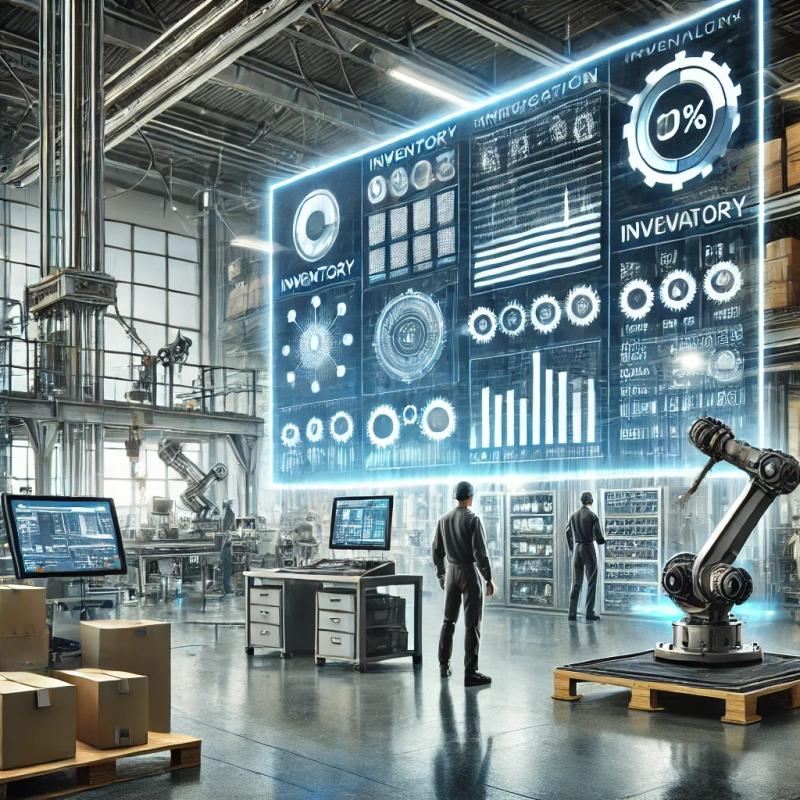The Best ERP for Manufacturing: A Key to Streamlined Operations and Success

Manufacturing is a dynamic industry that demands precision, efficiency, and adaptability to stay competitive. From managing production schedules to ensuring quality and maintaining supply chain integrity, manufacturers face complex challenges daily. This is where Enterprise Resource Planning (ERP) systems come into play. Designed to integrate and optimize processes, ERP solutions are game-changers for manufacturing businesses.
However, with a sea of options available, finding the perfect ERP system tailored to your operations can be daunting. Let’s explore what makes an ERP system ideal for manufacturing and how it can revolutionize your business.
What Sets the Right ERP Apart for Manufacturers?
Not all ERP systems are created equal, especially for the manufacturing sector. Manufacturers need solutions that address their specific challenges, offering tools that ensure smooth operations across production, inventory, quality control, and more. Here are the core features you should look for:
Production Management
-
Monitor production in real-time for better visibility.
-
Efficiently plan resources and schedules to maximize output.
-
Incorporate lean manufacturing practices and Just-in-Time (JIT) inventory management to reduce waste.
Inventory Control
-
Accurately track raw materials and finished goods.
-
Forecast demand to avoid overstocking or stockouts.
-
Automate reordering processes to ensure consistent supply.
Quality Assurance
-
Maintain stringent quality checks throughout production.
-
Simplify compliance with industry regulations and standards.
Supply Chain Management
-
Build stronger relationships with suppliers through integrated systems.
-
Gain real-time visibility into supply chain performance to preempt issues.
-
Streamline procurement processes to save time and costs.
Reporting and Analytics
-
Use customizable dashboards to track key performance indicators (KPIs).
-
Harness advanced analytics to spot inefficiencies and improve processes.
-
Empower strategic decisions with real-time insights.
Scalability and Flexibility
-
Support growth with systems that scale alongside your business.
-
Manage operations seamlessly across multiple locations or regions.
Specialized Features for Different Manufacturing Needs
Every manufacturing sector has its own nuances. The best ERP systems recognize these differences and provide tailored features:
-
Discrete Manufacturing: Manage complex bills of materials (BOM), engineering change orders (ECOs), and product lifecycles with ease.
-
Process Manufacturing: Ensure compliance with batch tracking, recipe management, and industry regulations.
-
Make-to-Order (MTO): Streamline scheduling and production for custom orders.
-
Engineer-to-Order (ETO): Integrate design tools like CAD software with project management to handle bespoke projects.
Why Manufacturers Need ERP Now More Than Ever
In today’s competitive landscape, manufacturers can’t afford inefficiencies. ERP systems serve as the backbone for integrating operations, reducing redundancies, and driving growth. Here’s what you gain with the right ERP:
1. Operational Efficiency
Automated workflows and unified data eliminate manual bottlenecks. Processes like production scheduling, inventory tracking, and financial reporting become seamless.
2. Cost Optimization
Better inventory management minimizes holding costs and waste. Streamlined supply chains reduce procurement expenses, and automation lowers labor costs.
3. Enhanced Decision-Making
Access to real-time data empowers leaders to make informed choices, identify opportunities, and mitigate risks effectively.
4. Superior Customer Satisfaction
Deliver on promises with accurate order fulfillment and faster production cycles. Improved quality control ensures products meet or exceed customer expectations.
5. Future-Proof Operations
As businesses grow, scalable ERP systems adapt to new challenges, ensuring long-term value and efficiency.
Choosing the Right ERP: What to Keep in Mind
Investing in an ERP is a significant decision. Here’s how to approach it:
-
Understand Your Needs: Define the challenges you aim to resolve and the features you need.
-
Research Vendors: Prioritize vendors with expertise in manufacturing and a proven track record.
-
Assess Scalability: Ensure the system can accommodate growth without compromising functionality.
-
Evaluate Costs: Consider the total cost of ownership, including setup, licensing, and ongoing maintenance.
-
Test the System: Request demos to assess usability and determine if it aligns with your processes.
-
Training and Support: Choose a vendor that provides robust training and ongoing support to ensure a smooth transition.
What’s Next for ERP in Manufacturing?
As technology evolves, ERP systems are becoming smarter and more integrated. Future trends include:
-
AI and Machine Learning: Automating decision-making, enhancing demand forecasting, and identifying operational inefficiencies.
-
IoT Integration: Real-time monitoring of production equipment and predictive maintenance capabilities.
-
Mobile ERP: Empowering on-the-go access for field teams and managers.
-
Sustainability Tools: Helping manufacturers reduce their environmental impact and adopt greener practices.
Conclusion
The right ERP system is more than just software—it’s a strategic asset that can transform your manufacturing operations. By streamlining workflows, enhancing decision-making, and driving cost efficiency, ERP solutions set manufacturers on the path to sustained growth and innovation.
As you explore options, focus on systems that align with your unique needs, offer scalability, and incorporate cutting-edge technologies. An investment in the right ERP is an investment in the future of your business.